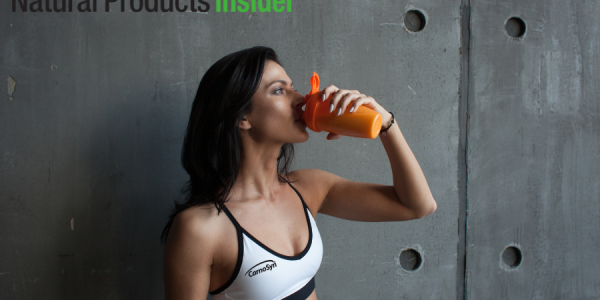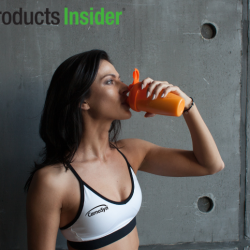Blog • January 19th, 2021
Cold Weather Training with Kevin Dunn
Warm-up Your Winter Training: An Interview with Kevin Dunn
The winter months, especially if you live in a cold climate, can throw a wrench into your training. Whether it’s the physiological effect of cold weather or your dampened willpower, training just seems to get tougher in the winter. Fear not. We have some tips to get you through.
The CarnoSyn® team sat down with our partner Kevin Dunn, CEO of TEST Sports, and trainer to NFL hopefuls, to talk shop about training in the cold. CarnoSyn® partners with TEST Football Academy to prepare the next generation of players for the NFL Combine, with scientifically-proven daily dosing of CarnoSyn® and SR CarnoSyn® beta-alanine.
How Does Cold Weather Training Differ From Warm-Weather Training, From a Physiological Standpoint?
KD: There are several physiological factors that can impact the human body depending on the environment you’re working in. This is always a topic of discussion we have with players that are preparing for the NFL. Facilities in the south often have athletes training outdoors where they are exposed to high heat indexes, where dehydration and repeated depletion of electrolytes and potassium can have serious side effects including muscle cramping and possible hyperthermia. These factors can keep the body in a catabolic state and limit the amount of work that can get done during workouts. In colder environments maintaining core temperature is very important. Wearing the proper apparel is essential to maintaining body temperature and keeping the skin dry and protecting it from the wind. Adding neoprene sleeves on your knees and elbows will not only give you more support but will also help keep your joints warm.
What Does the Body Need — in Training Style, Supplementation, Etc. — to Perform in Cold Weather?
KD: First off, replace your old school static stretching with what we call “Movement Development.” Extend your warm-up period utilizing compound movements that will not only help correct dysfunction and asymmetries but will also help keep the heart rate elevated and body temperature higher. This series of athletic, yoga-based movements elongates muscles, activates proprioceptive musculature, activates key stabilizers, activates the nervous system, prepares the body for upcoming movement patterns, and increases focus and mental preparation. Shorter rest intervals will keep the heart rate elevated and body temperature higher.
Cold weather itself does not increase calorie needs. Your nutrition and supplementation schedule should be relatively consistent for a cold-weather workout as it is for a warm-weather workout. We recommend stacking a pre, intra, and post-workout shake schedule utilizing a blended option of branched-chain amino acids, coconut powder water, and SR CarnoSyn® to help avoid dehydration, stimulate an anabolic environment and keep lactic acid in check. On the contrary, high heat and humid environments have shown to impair performance more than working out in the cold due to hyperthermia and dehydration. Consuming proper supplementation in a cold environment could prove to be more effectively absorbed as you are not in an uphill battle fighting to stay hydrated.
What Are Some Differences Between Cold Weather and Warm Weather Training?
KD: Almost anyone can perform optimally in warm weather, but if you are not mentally prepared for extreme heat, that could also serve as a psychological challenge — not to mention the physiological impact of dehydration and cramping. There is a certain level of mental toughness that comes along with cold-weather training. We get players every year that we recruit and end up losing to another facility due to the “vacation-like” warm-weather environment. Well, here’s what I have to say about that: Warm weather should be the last thing you weigh when selecting a training facility. Go where the results are and make sure you are getting all of the personal attention you deserve at the most critical point in your career. We tell our players to consider the fact that 18 NFL stadiums out of 32 are in environments that have an average temperature of 40 degrees or lower in December and January. Bottom line: If you’re training to reach peak performance in cold weather, you should train in cold weather.
What Are Some Exercises to Avoid in Cold Weather, and What Should They Be Replaced With?
KD: Highly ballistic movements, especially in the warm-up phase of your workout, should be avoided until your core temperature is elevated enough to cause your thermoregulatory system to activate and you begin sweating. The evaporation process of sweat is what cools the body and prevents overheating. Hip flexors are also tighter in the colder weather. It is important that your Movement Development warm-up and pre-hab work focuses on opening up the hips, hip flexors, and lower back. Try activities that embrace the cold weather like a hike with snowshoes, skiing, snowboarding, or cross-country skiing. Honestly, there can be a ton of family fun built into cold weather by doing something as simple as snow tubing. Find a hill and race your kids to the top!
What Are Your 5 Best Tips For Successfully Training in Cold Weather? KD:
- Dress appropriately to stay warm and dry.
- Plan on a complete warm-up to elevate core temperature.
- Cold weather itself does not burn more calories. Consume the same amount as you would any other non-cold workout.
- Stacking a pre, intra, and post-workout shake schedule utilizing a blended option of BCAA’s, coconut powder water (vs sodium), and SR CarnoSyn® to help avoid dehydration.
- Choose activities that you would enjoy and embrace the outdoors in the cold weather!
TWO WAYS TO GET RESULTS
CarnoSyn® beta-alanine is available in two different forms—instant release and sustained release—offering two ways to dose. SR CarnoSyn® offers the same benefits as instant release CarnoSyn®, but in an advanced delivery system that allows for increased dosing for better results. When used in tandem, the combination of instant release and sustained release gives athletes the ability to stack their dosing for higher quantities of beta-alanine and even more performance gains.
CONTACT CARNOSYN® FOR MORE INFORMATION
Contact
Research has shown that the synergy between creatine and CarnoSyn® beta-alanine amplifies their individual effects,…
2024 Updated While women lead men in dietary supplement purchases, the industry is lacking in…
CARLSBAD, CA, APRIL 2, 2024—Natural Alternatives International, Inc. (“NAI”) (Nasdaq: NAII) today announced the expected…
CARLSBAD, CA, FEBRUARY 15, 2024—CarnoSyn® Brands and parent company Natural Alternatives International, Inc. (“NAI”) (Nasdaq:…














